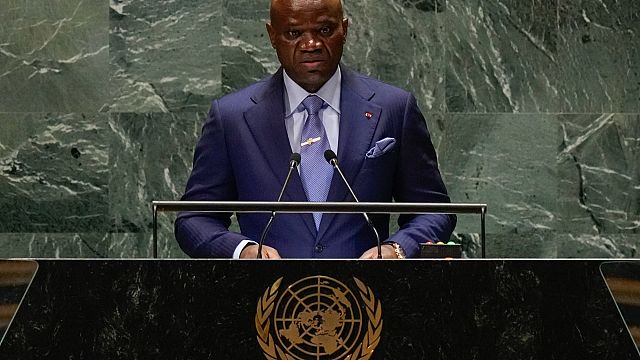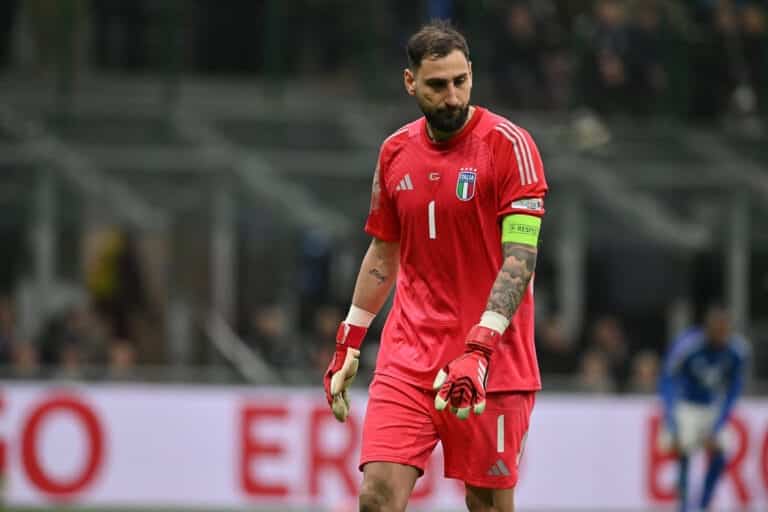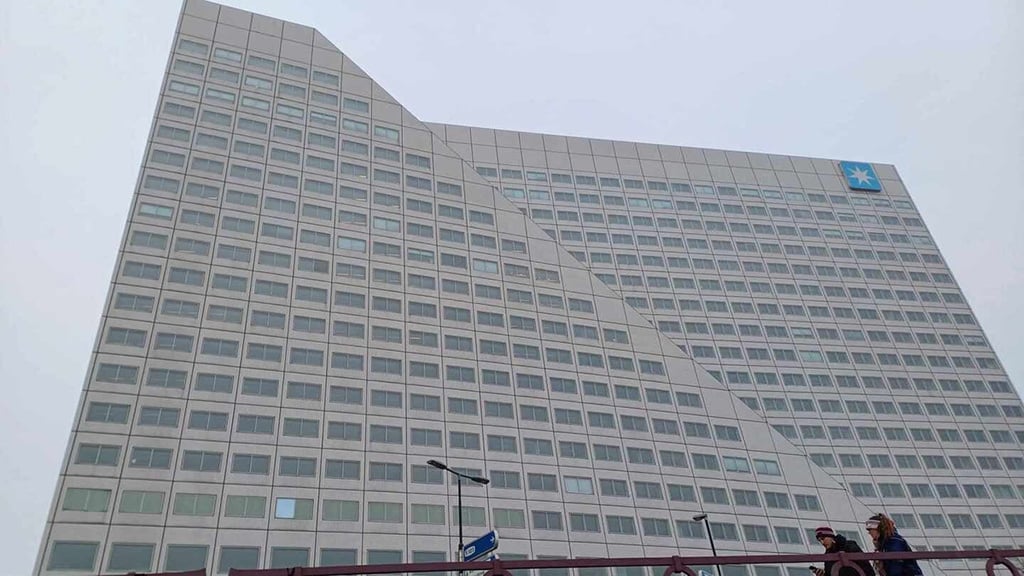South African Police’s Frequent Use of Torture Echoes Apartheid’s Brutality

During the worst days of apartheid, South Africa’s white-led police force terrorized Black people with a brutal interrogation tactic that involved suffocating them, often with plastic bags.
After apartheid, South Africa adopted a constitution that explicitly outlawed such torture methods and signed international treaties committed to prevent it.
But a New York Times analysis of government data has found that, three decades after apartheid, the police in South Africa continue to use the same suffocation method — known as tubing — when interrogating suspects.
From 2012 to 2023, an average of three people per week filed complaints that the police had tubed them during interrogations, according to the analysis done by The Times in collaboration with Viewfinder, a South African journalism nonprofit that reports on police misconduct.
The findings represent a striking contradiction. A government led by freedom fighters who helped liberate Black South Africans from apartheid is now overseeing a police force that tortures them, betraying a promise not to repeat the atrocities of the country’s former oppressors.
“I’m really shocked because it brings back very, very, very bad memories,” said Khulu Mbatha, a veteran of the liberation party, the African National Congress, when told of the findings. “The leadership of the A.N.C., when they came to power in 1994, made it clear: No soul should be subjected to that.”
In its simplest form, tubing involves pulling a plastic bag over someone’s head and fastening it around the neck. In the tubing complaints analyzed by The Times, some victims described being tortured in front of their wives or children, or being brutalized in clandestine locations.
Innocent Sebediela was accused of stealing a television, and taken to a police station south of Johannesburg. Officers sprayed pepper spray into a plastic bag and wrapped it tightly over his head, according to Moeketsi Donament Moleko, who was being held at the same station, and two other witnesses.
Mr. Sebediela defecated himself as his body writhed, Mr. Moleko recalled. He passed out in a cell and died the next morning of “severe blunt force injuries,” according to a post-mortem examination.
“I always think, ‘What if it was me that died?’” Mr. Moleko said.
The two officers involved were convicted at trial in 2020 and sentenced to 18 years in prison for murder and torture. But officers are rarely held accountable.
The Times identified about 1,700 tubing complaints lodged over 11 years with the Independent Police Investigative Directorate, a government watchdog. In only one case did the police dismiss an officer. (He was later reinstated.) In six instances, officers were convicted in court, according to the data.
Commanders within the South African Police Service and top government officials have repeatedly been warned about the frequent use of torture, including in a confidential United Nations report from 2023 that was obtained by The Times.
“Such unacceptable practices should cease immediately,” the report said. The government never bothered to respond, as required as a signatory of a U.N. anti-torture protocol.
Col. Athlenda Mathe, a spokeswoman for the police service, did not respond to detailed questions for this article, but said in a statement that the department “regards any allegations of torture as a serious misconduct,” and that it has measures to prevent it.
The Times analysis shows that those efforts have largely fallen short.
Experts have long agreed that information extracted through torture is unreliable because victims are likely to make false confessions under extreme duress. Yet current and former officers told The Times some commanders nevertheless believe torture produces results.
Turning a Blind Eye
South Africa has among the world’s highest murder rates. The frequency of brazen crimes, like mass shootings of families or armed robberies in broad daylight, has drawn attention from the likes of President Trump and left many in the country critical of the police.
To address the criticism and tackle runaway crime, the police established aggressive quotas for things like arrests and the seizure of illegal guns. Under immense pressure to meet those targets, some commanders turn a blind eye to allegations of torture, said Jeremy Vearey, a former senior South African police official who was fired four years ago for publicly criticizing the national police commissioner.
“For the commander, the guy who tortures might be the highest producer of the targets,” Mr. Vearey said. “You are not going to pay attention to whatever rumors there are about that person.”
A lax disciplinary system, gaps in training and the absence of safeguards like body cameras have allowed tubing to continue, interviews and records show. But Tumelo Mogodiseng, the general secretary of the South African Policing Union, said that claims of torture in the country are overblown.
“It’s easy for criminals to tell lies about police officers,” Mr. Mogodiseng said, referring to the tubing complaints identified by The Times. “They’re trying to make it difficult for police officers to do their job.”
Get the Guns
Patrick Gosling, a former police officer, said that in more than 25 years on the force, he witnessed torture regularly during raids on rural homesteads. He never personally tubed anyone, he said, but he did eventually become inured to a culture of violence.
He was arrested and charged with murder in 2015 for fatally shooting suspects in two separate incidents. He was convicted and sentenced to 15 years and released on parole in December.
“We do the dirty work,” he said, “for the high-ranking officers to shine.”
At the beginning of each month, Mr. Gosling recalled, his commander in the southern province of KwaZulu-Natal would give his team clear instructions: Bring him a certain number of illegal guns, stolen vehicles and high-profile arrests, or be reprimanded and berated.
“You cannot come to work for the day, use the police’s resources and then turn up empty-handed,” Mr. Gosling said. “As a member, you feel embarrassed. The commander humiliates you. You must bring a result.”
On paper, South Africa has many guardrails to prevent torture. Parliament passed a law in 2013 criminalizing torture, with a maximum sentence of life imprisonment. The police department has issued written guidance to its officers outlining the law. The department’s training manual for detectives includes interrogation techniques that align with global best practices.
But current and former officers said the training is inadequate and unevenly followed.
Andries Zongezile Somzi, currently a sergeant with the South African police, said his own colleagues tubed him two years ago. Investigators accused him of helping robbers steal guns from his police station — an allegation he denies.
To get him to confess, he said, they suffocated him by fastening a plastic bag over his head. He filed a complaint with the government’s police watchdog, which is still investigating. Officers who use these torture methods, Mr. Somzi said, “think that they are untouchable.”
‘I Feel Like I’m Dying’
Tubing became so common in apartheid South Africa that the new democratic government in 1994 struggled to rein it in.
Tens of thousands of officers who had worked on the force during apartheid were allowed to keep their jobs, even as President Nelson Mandela sought to usher in a new era of human rights.
A Truth and Reconciliation Commission reported in 1998 that “torture and deaths in custody” had reached “alarming levels” in the years since apartheid had ended. The commission recommended that the police undertake “urgent measures to halt these practices.”
That call persists today.
Chris Nissen, the chairman of the South African Human Rights Commission, said his agency regularly informs police officials of the torture complaints it receives, but the response is often denial.
Tubing was originally done by tightly pulling a piece of a tire tube over the nose and mouth, thus its name. Victims are prone to sudden cardiac arrest as they teeter on the edge of death, said Dr. Steve R. Naidoo, a forensic pathologist with decades of experience investigating torture and deaths in police custody in South Africa.
Mthokozisi Ngubane thought he was going to die, he said, when a police officer straddled his chest and held a plastic bag over his head five years ago. Officers had charged into his rural homestead where he made a living raising cattle, and demanded that he hand over an illegal gun, he said.
When he denied having one, they started tubing him, he said.
As he started losing consciousness, the officer removed the bag. But when he didn’t give the answers the officer was looking for, the bag was put back over his head. After the third time, Mr. Ngubane said, he was punched in the face and sprayed with pepper spray.
“I feel like I’m dying,” he recalled telling the officers as his eyes burned. “There was this shock, disorientation.”
Officers raided his home and tubed him again in 2022, he said.
Mr. Ngubane says he has never owned a firearm and that he feels the police have stolen his dignity. He filed a complaint with the government’s police watchdog, but is still waiting for an update on his case.
“The fact that these people are not being arrested,” Mr. Ngubane said, “makes me live in fear.”
Torturer Turned Watchdog
There was a time when officers resorted to tubing only when they were trying to solve particularly heinous crimes, said Madoda Martin Zulu, a former South African police detective.
Mr. Zulu said he had been a detective for about a year in 2003 when he first saw a colleague torture someone suspected of murder.
“At the time you would feel what the deceased’s family feels — that they’ve lost their loved one because of a person who is in front of you,” Mr. Zulu said. “So I did not feel bad at all.”
He estimates that he tubed suspects “maybe less than 50 times” during his career. Over time, he said, he came to realize that tubing was dangerous and wrong, and turned into an outspoken critic. In 2011, he joined the government agency that investigates police wrongdoing.
Part of what makes tubing attractive to some officers is that it leaves little physical evidence and cases often come down to the officer’s word versus the victim’s, Mr. Zulu said.
Even when an officer is punished for tubing, the practice continues, he said. “If you make an arrest in a particular station, it stops for a while and then comes back.”
For some detectives, tubing has become as routine as slapping on handcuffs. One veteran detective described casually pulling a plastic shopping bag from his desk and putting it over the head of a detainee who sat handcuffed in his office.
“If we go according to the books, we aren’t going to make most of the cases,” said the detective, who spoke on the condition of anonymity for fear of losing his job.
He estimated that he had tortured hundreds of people, and said that it was part of the excitement of cracking cases.
But as he gets older, he said, he has started to think twice. He does not believe the department will protect him if he is investigated.
“What I realized about the police, you work hard, you arrest suspects, you get praised,” he said. “But you are alone when you go to court. You are like a dog — you can be replaced at any time.”
Lynsey Chutel contributed reporting.
What's Your Reaction?
 Like
0
Like
0
 Dislike
0
Dislike
0
 Love
0
Love
0
 Funny
0
Funny
0
 Angry
0
Angry
0
 Sad
0
Sad
0
 Wow
0
Wow
0







































